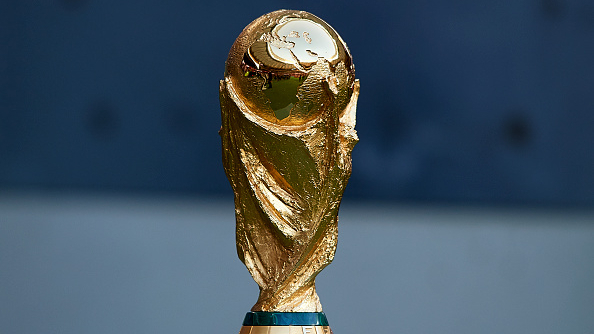In October 2017, details of an ongoing investigation by the Swiss and US authorities into corruption in the bidding process for the rights to host the 2026, 2030, and 2034 World Cups came to light. The investigation concerned the extent to which bribery may have influenced voting outcomes for these tournaments. In particular, Qatar’s victorious bid for the 2022 World Cup was identified as being of interest to investigators because of alleged bribes paid by their bid team. This article explains why there’s so much controversy around this topic.
What’s the background to this?
In 2015, two years after the Qatari bid for the 2022 World Cup was successful, a hack of the governing body’s computer systems revealed that rival bids for the tournament that had lost out to Qatar had contained far more detailed and well-presented proposals than Qatar’s bid. This led to allegations that Qatar’s bid contained serious irregularities, including allegations of bribery. The English Football Association, which had voted in favour of the world cup being held in Qatar (the only FIFA member to do so), became a focus of controversy following the hacking. It was reported that a former senior member of the England bid team claimed that there had been a “black ops” campaign to “smear” Qatar’s bid. The government’s sports minister raised concerns about the “integrity” of the bidding process.
Who’s been caught up in the scandal?
The scandal has ensnared a number of high-profile figures from the world of football and beyond. – Joachim “Jogi” Blatter: Former president of Fifa, Blatter resigned from his post in the wake of the scandal in 2015. He was criminally convicted in a Swiss court in 2016 for his part in the scandal, relating to bribes paid to secure the rights to host the 2010 World Cup in South Africa. Blatter was given a suspended three-year prison sentence and a fine of ˆ1.5 million. – Michel Platini: Blatter’s successor as president of FIFA, Platini was widely expected to be ratified as the next FIFA president, until he too was implicated in the scandal. He was subsequently banned from football for eight years for ethics violations. – Sepp Blatter: Blatter’s predecessor at the head of FIFA, Sepp Blatter is alleged to have been the person who arranged payments from Qatar’s bid team to Platini, in exchange for the Frenchman’s support of their bid. Both Blatter and Platini deny wrongdoing. – Mohamed bin Hammam: A former vice president of FIFA, bin Hammam was one of the key figures in Qatar’s 2022 bid team. In 2012, he was banned from football for life after being found guilty of attempting to bribe officials during the bidding process. He was also banned from taking part in any future Olympic Games. – Jack Warner: Former FIFA Vice President, and former leader of the Caribbean Football Union. Warner was one of the most vocal supporters of Qatar’s 2022 bid. He was one of 14 FIFA officials charged in the United States with corruption offences in connection with the bidding process. He has been banned from all football activities until 2022.
2022 World Cup in Qatar – a problem from the start
Qatar was awarded the right to hold the tournament in December 2010, winning out over bids from the United States, Japan, and Australia. From the beginning, Qatar’s bid for the tournament has been controversial, and has been the subject of a steady flow of allegations, including that it was won on the back of bribes paid. Qatar’s bid has been criticised for a variety of reasons related to both sport and hosting the tournament. These include: – Qatar’s heat: Qatar’s climate is extremely hot, and the tournament is staged during the winter in order to avoid clashing with other sports tournaments. The extreme heat is expected to pose a significant challenge to players, and to the health of fans attending the tournament. – Qatar’s lack of footballing pedigree: Qatar has no tradition of domestic football, and has no senior team in any international tournaments. – Qatar’s human rights record: In the run-up to the 2022 tournament, Qatar has faced heavy criticism over its human rights record.
Fifa fines and suspensions
In the wake of allegations of wrongdoing in the 2022 bid, Qatar’s football federation was fined $100,000 by FIFA in 2011 for attempting “to undermine the integrity of the FIFA bidding process”. In 2012, a further $150,000 fine was imposed after the Qatari FA was found to have made further “false declarations”. In October 2017, two senior members of the Qatari 2022 bid team were banned for life for their involvement in the scandal, including the chief executive of the bid team. This squelched speculation that Qatar might see their right to host the tournament revoked as a result of the scandal.
Could Qatar be stripped of its right to host?
A number of senior figures have suggested that Qatar could face losing the right to host the 2022 World Cup in light of the scandal. The British parliament’s Culture, Media, and Sport Select Committee has called for FIFA to review Qatar’s right to host the tournament, while FIFA president Gianni Infantino has insisted that FIFA will resolve the issue “inside FIFA”. FIFA’s rules allow it to strip Qatar of the right to host the tournament if it concludes that the country did not “comply with the rules and regulations for the selection of the host country”. Despite the consistent stream of negative news relating to Qatar’s selection as host, there is no tangible evidence of wrongdoing by the Qataris. Indeed, Qatar has denied all wrongdoing and has vowed to defend its right to hold the tournament.
The eventual outcome
There is no clear end in sight to the investigation, which looks likely to run for years. It’s possible that Qatar’s right to host the tournament will be revoked, or that the tournament will be moved elsewhere, but it’s also possible that nothing will change. FIFA’s reluctance to act decisively in the face of allegations of wrongdoing is a source of frustration among many observers. In the meantime, the investigation is a source of damaging publicity for the sport, and is likely to damage the reputations of all involved. Qatar’s hosting of the tournament will be controversial whatever the outcome, but its critics argue that FIFA could have avoided some of the controversy by dealing with the allegations of wrongdoing before they became public. This would have allowed the governing body to impose any sanctions it deemed appropriate without the damaging public scandal that has ensued.
Summary
The controversy over the 2022 World Cup in Qatar continues, with questions over whether or not the tournament will be moved to another country. There are serious allegations of wrongdoing against Qatar’s successful bid for the tournament, including bribery and the use of false information. There is no clear end in sight to the investigation, which looks likely to run for years. It’s possible that Qatar’s right to host the tournament will be revoked, or that the tournament will be moved to another country, but it’s also possible that nothing will change.






More Stories
Round of 32 match versus Monteiro (+190). Tennis odds courtesy of Tipico Sportsbook
Kentucky Derby Day Countdown Begins, 20 Horses Down to Party
Miami Heat’s Jimmy Butler Injury Will He Play In Game 4?